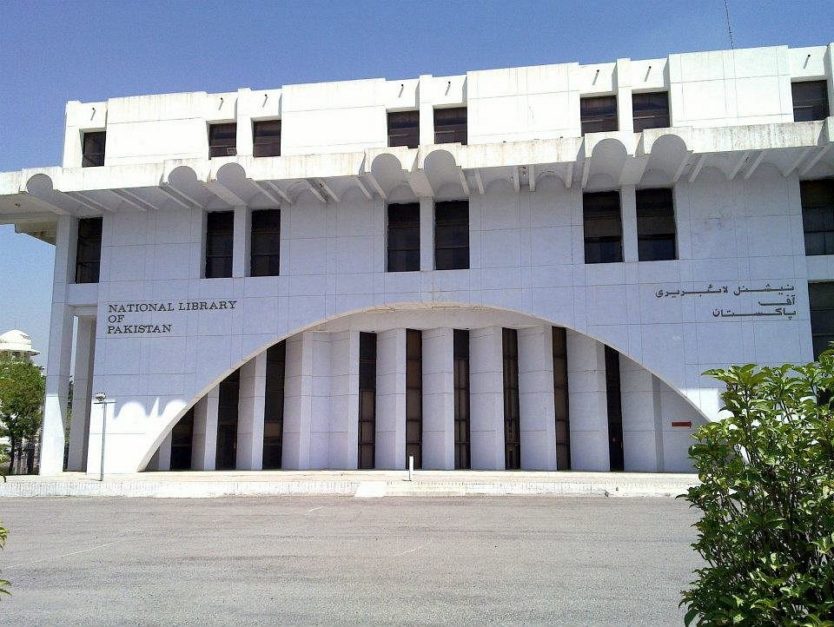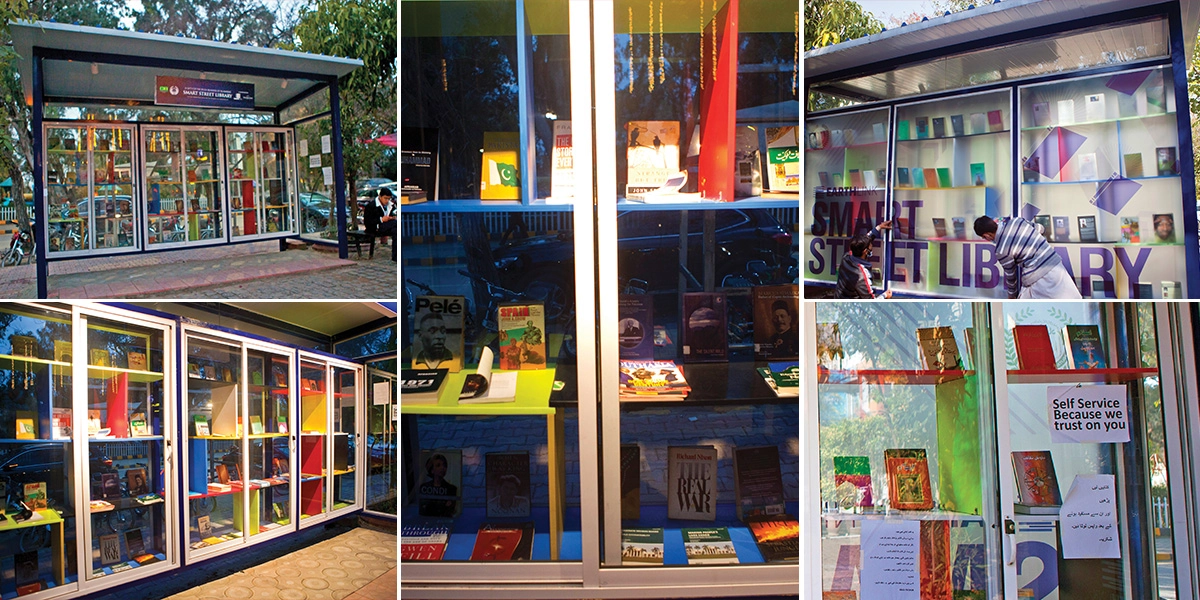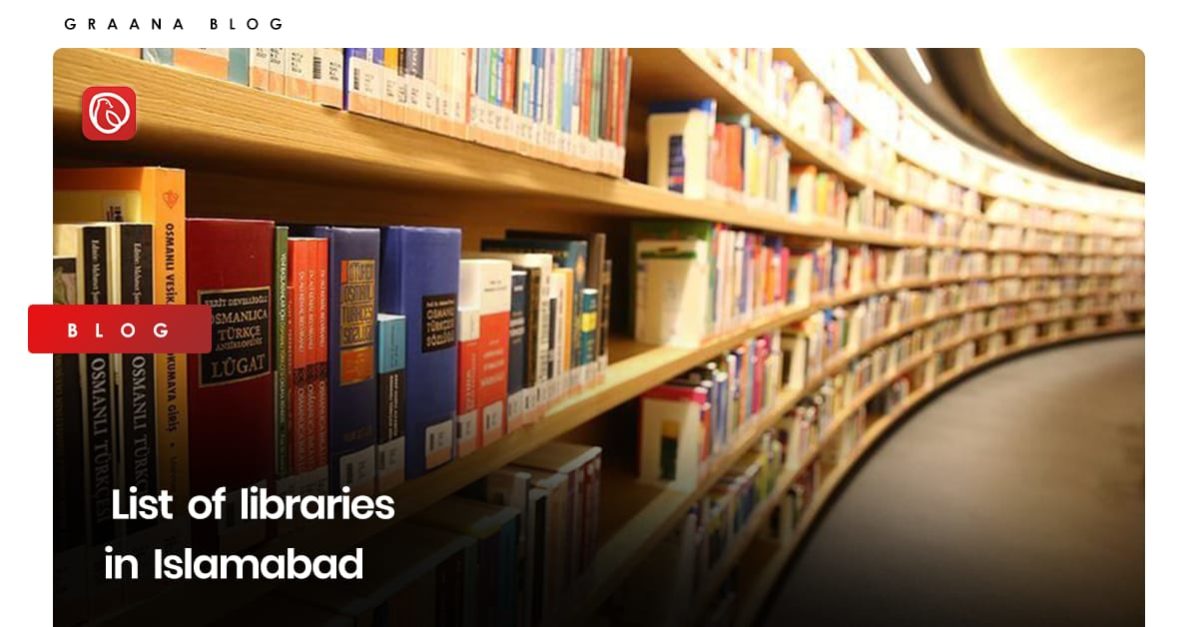The increasing number of libraries in Islamabad has led to more learning opportunities, more support for literacy and education, and the shaping of new ideas that are fundamental for a creative and innovative society. Access to well-built libraries, art museums, and other cultural institutions is essential to the development and prosperity of every nation.
The city of Islamabad is home to many libraries, each of which houses a sizable collection of books, academic journals, periodicals, newspapers, and DVDs that educate readers on topics relating to culture, history, academics, and both local and worldwide current affairs.
Graana.com gives an overview of libraries in Islamabad below.
Libraries in Islamabad
| Library | Address |
Timings |
| National Library of Pakistan | Shahrah-e-Jamhuriat or Constitution Avenue, G-5 | Monday to Friday – 9 am to 6 pm
Saturday and Sunday – 9 am to 5 pm (for members only) |
| Quaid-e-Azam Library | Fatima Jinnah Park, F-9 | Monday to Saturday – 9 am to 4 pm |
| CDA Library | G-11 Markaz | Monday to Friday – 9 am to 8 pm |
| Smart Street Library | Street 10, F-6/3, F-6 | Open 24/7 |
| Islamabad Public Library | Plot #35, Service Rd E, H-9/4 H-9 | Monday to Saturday – 9 am to 5 pm |
| Library of Congress | US Embassy, Diplomatic Enclave, Ramna-5 | Monday to Saturday – 9 am to 5 pm |
| Minhaj-ul-Quran International Library | Lehtrar Road, Chirah Chowk, Chirah, Nilore | Monday to Saturday – 9 am to 5 pm |
| Jinnah Public Library | Diplomatic Enclave Islamabad | Monday to Saturday – 9 am to 5 pm |
National Library of Pakistan

In 1947, after Pakistan obtained independence from British India, the National Library of Pakistan was established. It was initially based in Karachi and aimed to gather, protect, and facilitate access to the country’s literature.
The library and the government moved to Islamabad, Pakistan’s new capital, in 1965. A purpose-made facility was erected to handle its growing collection and broadening range of services.
The National Library of Pakistan has maintained a crucial role in safeguarding the nation’s intellectual and cultural past. It is a valuable resource for academics, researchers, and the general public because it contains many books, manuscripts, journals, and other materials. The library aims to advance research, education, and literacy by facilitating access to a wide variety of knowledge.
The National Library of Pakistan is one of the oldest public libraries in Pakistan, and it has an extensive collection of printed books, manuscripts, and pictures – some of which date back to the 18th century. Additionally, it is one of the few libraries in Pakistan to have a collection of maps that date back to the mid-19th century.
In addition, the library holds many manuscripts, some of which are copies of works written by famous personalities in Pakistan like Faiz Ahmad Faiz and Muhammad Iqbal. The library is home to a vast assortment of electronic resources, such as online catalogs, databases, e-books, and e-journals, as well as an extensive collection of printed works and handwritten documents.
Quaid-e-Azam Library

Quaid-e-Azam Library is the city’s most extensive and most well-known library. It is located in Fatima Jinnah Park, one of the best parks in Islamabad. It is beneficial for research as it has a vast collection of books, contemporary research journals, periodicals, and newspapers. In addition, the staff is always ready to assist.
Muhammad Ali Jinnah, who founded Pakistan, was honored with constructing the Quaid-e-Azam Library in Islamabad in 1967. It acts as a library for publications about Jinnah and the Pakistan Movement. A wide variety of books, records, and historical resources are kept in the library.
To meet the demands of scholars and researchers, the library has evolved and grown over time. It serves as a crucial resource center for people who are interested in learning about Jinnah’s contributions to Pakistan’s history.
In addition to conducting research, the Quaid-e-Azam Library organizes conferences, exhibitions, and cultural and educational events to promote Pakistan’s past and culture. It still plays a significant role in Islamabad, upholding the founding father of Pakistan’s legacy.
CDA Library
CDA Library was built to advance research and knowledge, as well as promoting a healthier lifestyle. The CDA (Capital Development Authority) and the Department of Libraries in Islamabad are working together on this initiative.
Therefore, visitors can find a fitness center and a library in the same facility. They have access to cutting-edge workout equipment, as well as a vast selection of books that cover several subjects.
Smart Street Library

The Smart Street Library is a novel and forward-thinking approach encouraging people to read more. This small library officially opened for business in 2021 at sector F-6 by the Director-General of ICT.
It is a place where people can meet, socialize and exchange books. This is especially beneficial for those who cannot afford to buy books or sign up for library membership.
Islamabad Public Library
The Islamabad Public Library is ideal for academics and students of CSS as it houses more than 30,000 volumes. You will be required to pay a one-time charge to obtain a membership card to take advantage of the library’s resources.
Library of Congress
The Library of Congress houses Pakistan’s most extensive public collection of books and is also South Asia’s second most extensive library. It contains over two million resources, including books, journals, newspapers, magazines, audio and video recordings, and maps. The library also features a research section, which provides services such as an online catalog and access to other online resources.
Minhaj-ul-Quran International Library
This is one of just three international Islamic libraries in South Asia and the only one in Pakistan. It was founded in 1998 and has more than one million volumes relating to Islam and other aspects of the Muslim culture. Additionally, the library features a reading room that hosts Islamic-themed lectures and forum discussions regularly.
Jinnah Public Library
Residents of the Diplomatic Enclave in Islamabad have access to various resources thanks to this well-stocked library. Apart from a sizable collection of books, it also has a comprehensive collection of CDs and DVDs and a significant number of computer resources.
For more informative content, visit the Graana blog.
FAQs
Which is the No 1 library in Pakistan?
The No.1 library in Pakistan is the National Library of Pakistan, located in Islamabad.
Where is biggest library in Pakistan?
The biggest library in Pakistan is also the National Library of Pakistan, located in Islamabad.
Which is the most famous library in Pakistan?
The most famous library in Pakistan is the Punjab Public Library, located in Lahore. It is one of the oldest and largest libraries in the country, with a vast collection of books and historical manuscripts.
Which is the best college library in Pakistan?
The best college library in Pakistan is subjective and can depend on individual opinions and criteria. However, some of the top college libraries in Pakistan include the Aga Khan University Library in Karachi and the LUMS Library in Lahore.




